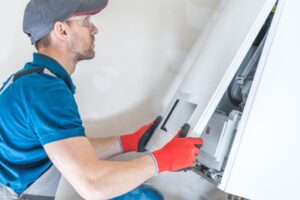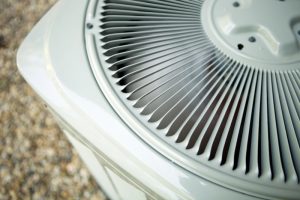How do you know when your furnace in your Renton house is “on the fritz?” There are warning signs of a broken furnace and some are recognizable – but not all. A broken furnace not only deprives your home of heat and comfort, it also can be deadly, too.
Let’s look at some of the warning signs.
Each year, hundreds of people die and many more are injured from the most common household poison: carbon monoxide. This colorless and odorless poisonous gas comes from several sources and the furnace is the most common source of all; more precisely a broken or malfunctioning furnace. Carbon monoxide is a result of incomplete combustion of a fossil fuel, which is when a fuel does not burn correctly or completely. In a furnace, carbon monoxide gas comes from a poorly operating burner or a cracked heat exchanger. A properly tuned and maintained furnace greatly reduces the risk of carbon monoxide poisoning.
Since carbon monoxide gas is colorless and odorless, it can go undetected. It can make people sleepy and create flu-like symptoms. Sometimes a person may fall asleep and never wake up. But there are warning signs. Drowsiness, vomiting, or flu-like symptoms are a warning sign. Regularly scheduled maintenance of your furnace by a qualified heating and cooling professional and installation of carbon monoxide detectors can reduce the risk of falling ill to carbon monoxide gas.
Another warning sign is a higher energy bill. Sometimes you can’t detect a problem right away because, like carbon monoxide, there may be no obvious signs. Higher utility bills can be a sure sign of a furnace that is working too hard and running more than usual. This may be a result of clogged or dirty air vents, or dirty filters. If your monthly bills are higher than those of the previous year, it may not just be because gas prices are higher.
There are other warning signs of a broken furnace, too. The most obvious is the failure of your furnace to bring your home up to the desired thermostat settings or to maintain an even temperature. Cold or uncomfortable houses are sure signs of a broken furnace. The furnace may cycle on or off, causing an uneven or inconsistent flow of heated air. This can be because of a poor blower or a clogged furnace filter. If you don’t feel any moving heated air or detect any unusual odors or smells coming from your heating vents, that’s a sure sign of a broken or malfunctioning furnace.
A broken or cracked gas line can emit odors and can cause a furnace to malfunction, too.
Don’t take a chance of losing heat and comfort this winter. At the first possible warning sign, call your local heating and professional for a heating system tune-up.
Continue Reading
Tags: Auburn, Furnace Repairs, Heating Repairs, Orting, Pierce County, Renton, Sammamish
Posted in Heating | Comments Off on Warning Signs of a Broken Furnace: A Guide From Renton
 Furnace systems are very complex. When dealing with an important appliance like this, you’ll need to be one of two things—a trained and licensed HVAC professional or a vigilant homeowner with the phone number of a trained and licensed HVAC professional!
Furnace systems are very complex. When dealing with an important appliance like this, you’ll need to be one of two things—a trained and licensed HVAC professional or a vigilant homeowner with the phone number of a trained and licensed HVAC professional!
 Fall is just around the corner, which means soon enough we’ll be able to turn off our air conditioners for another season. In the meantime though, wouldn’t it be nice if you could reduce your cooling bills? Fortunately, there is a way! Several ways, in fact. And they cost little to nothing.
Fall is just around the corner, which means soon enough we’ll be able to turn off our air conditioners for another season. In the meantime though, wouldn’t it be nice if you could reduce your cooling bills? Fortunately, there is a way! Several ways, in fact. And they cost little to nothing.